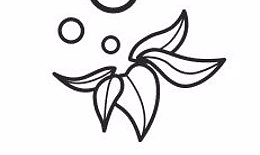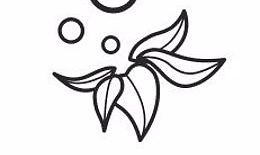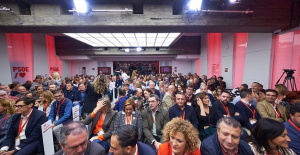They emphasize the role of Russia as an "aggressor" and insist on the need to make Europe "a safer place"
MADRID, 29 Jun. (EUROPA PRESS) -
NATO leaders on Wednesday applauded Turkey's withdrawal of the veto on Sweden and Finland's accession to the Alliance and have already spoken of "success" at the start of the summit that is being held this week in Madrid.
The British 'premier', Boris Johnson, has assured that the Turkish "withdrawal of the veto" is "a great step forward for our allies" and has pointed out that now we must address the lessons "learned during the last few months" to "review the NATO's position on the eastern flank".
Likewise, he indicated that the Russian president, Vladimir Putin, "was expecting less NATO and now he has more NATO on the eastern flank due to his illegal invasion of Ukraine" and stated that it is "a historic summit in many ways" given that "we have and two countries that are going to unite and this is a big step forward for the Alliance".
In turn, the German chancellor, Olaf Scholz, has reaffirmed that "today is a very important day for NATO" and has pointed out that the objective of the summit is "to strengthen the security of the Alliance, of Europe and of the whole world ". For this, he has declared, "the accession of Sweden and Finland is relevant". "It is a very important moment in our history," he insisted.
The Prime Minister of the Netherlands, Mark Rutte, has been "very happy" about the "great news" of the end of the Turkish blockade, while for his counterpart from the Czech Republic, Petr Fiala, the entry of two new members into the Alliance allows progress towards "a new security architecture in Europe" at a time with "new dangers".
For his part, the Belgian Prime Minister, Alexander De Croo, has ventured that the Turkish decision "will make NATO stronger" and will make it "a better ally". Thus, he has stressed that it is one more example of the "unity" of the Alliance during these last months and after the beginning of the Russian invasion of Ukraine at the end of February.
"This is great news. (...) It makes us more attractive," he said upon arrival at the Ifema Madrid site. De Croo has highlighted the importance of "continuing to talk" with the Ukrainian president, Volodimir Zelenski, and has conveyed that Russia "can only be defeated on the battlefield".
In this sense, he stated that from the Belgian side they have supported Ukraine "from the first moment" and recalled that "they were among the first to send military material". "I believe that continuing to support the Ukrainian forces is the way we can make a difference and stop Russian aggression," he added.
Regarding Ukraine's accession to the EU, he clarified that it is a "symbolic message" for other countries, such as North Macedonia and Georgia. "It's symbolic, but symbolic messages are very important today," she said.
In this sense, the Polish president, Andrzej Duda, has reaffirmed that the idea is "to make Europe a safer place" and has stressed that "Russia is an aggressor". "She has attacked Ukraine and is a threat to Europe, but also to the whole of NATO. There is no doubt", he asserted before stressing that the accession of Sweden and Finland is "important and significant". "We are very happy in Poland and we hope that the final decision will take place today", he continued.
The president of Latvia, Egils Levits, has welcomed Finland and Sweden to the Atlantic Alliance and has indicated that, with their incorporation, the eastern flank will be strengthened. He also stressed that the country he presides over is one of the countries that provides the most support to Ukraine. "Ukraine must win the war," he added.
He has been joined by the Lithuanian president, Gitanas Nauseda, who has ventured that the summit will be held next year in Vilnius, the capital of Lithuania, and has stated "this is our response to Russia". "I hope the Alliance uses this opportunity well as it will probably be the last," he added.
The president of North Macedonia, Stevo Pendarovski, has valued NATO's "open door policy" and has insisted that "it must not change". "We think that NATO should have the door open to anyone who wants to enter ... there is no reason why they can't," he said.
With an eye on Ukraine, he has emphasized that "it is a sovereign right" of any country to choose its security policies and has rejected that other countries do so.
Regarding the summit, Pendarovski stressed that it is a "unique opportunity" for the allies to show their "strength" and "cohesion". In this line, he has highlighted that the aim of the allies is to "defend their territory" and democratic and freedom values.
The Prime Minister of Iceland, Katrin Jakobsdottir, has stated that "obviously" her Government is also very happy with the imminent incorporation of Sweden and Finland, insofar as they are allies that already have good infrastructures and are, moreover, leaders in political and human rights issues.
The leaders' words come a day after Turkey's President Recep Tayyip Erdogan, Sweden's Prime Minister Magdalena Andersson and Finland's President Saulio Niinisto signed a three-party agreement under which Ankara lifts his veto of the accession of Helsinki and Stockholm to the Atlantic Alliance in the midst of the war in Ukraine.
Although the document does not imply the immediate adhesion of both Nordic countries to the Alliance, it does initiate the process, whose concrete steps will be taken "in the coming days", when the NATO allies address the union of Helsinki and Stockholm to the military group.

 Exploring Cardano: Inner Workings and Advantages of this Cryptocurrency
Exploring Cardano: Inner Workings and Advantages of this Cryptocurrency Seville.- Economy.- Innova.- STSA inaugurates its new painting and sealing hangar in San Pablo, for 18 million
Seville.- Economy.- Innova.- STSA inaugurates its new painting and sealing hangar in San Pablo, for 18 million Innova.- More than 300 volunteers join the Andalucía Compromiso Digital network in one month to facilitate access to ICT
Innova.- More than 300 volunteers join the Andalucía Compromiso Digital network in one month to facilitate access to ICT Innova.-AMP.- Ayesa acquires 51% of Sadiel, which will create new technological engineering products and expand markets
Innova.-AMP.- Ayesa acquires 51% of Sadiel, which will create new technological engineering products and expand markets STATEMENT: ELFBAR and LOST MARY reveal progress in the fight against illicit vapers (1)
STATEMENT: ELFBAR and LOST MARY reveal progress in the fight against illicit vapers (1) STATEMENT: ELFBAR and LOST MARY reveal progress in the fight against illicit vapers (2)
STATEMENT: ELFBAR and LOST MARY reveal progress in the fight against illicit vapers (2) The PSOE is holding a Federal Committee this Saturday that will serve to close ranks with Sánchez so that he does not resign
The PSOE is holding a Federal Committee this Saturday that will serve to close ranks with Sánchez so that he does not resign The Ibex 35 closes the week at its highest since 2015 and is already looking at 11,200
The Ibex 35 closes the week at its highest since 2015 and is already looking at 11,200 How Blockchain in being used to shape the future
How Blockchain in being used to shape the future Not just BTC and ETH: Here Are Some More Interesting Coins Worth Focusing on
Not just BTC and ETH: Here Are Some More Interesting Coins Worth Focusing on UPV students build a prototype of a wooden house to move to Equatorial Guinea
UPV students build a prototype of a wooden house to move to Equatorial Guinea The UA opens the call for the Impulso 2024 Awards for the best innovative business initiatives
The UA opens the call for the Impulso 2024 Awards for the best innovative business initiatives ALI, virtual assistant from Alicante, internationally recognized by the OECD
ALI, virtual assistant from Alicante, internationally recognized by the OECD Retrópolis brings the golden age of video games and computing to the UPV
Retrópolis brings the golden age of video games and computing to the UPV A million people demonstrate in France against Macron's pension reform
A million people demonstrate in France against Macron's pension reform Russia launches several missiles against "critical infrastructure" in the city of Zaporizhia
Russia launches several missiles against "critical infrastructure" in the city of Zaporizhia A "procession" remembers the dead of the Calabria shipwreck as bodies continue to wash up on the shore
A "procession" remembers the dead of the Calabria shipwreck as bodies continue to wash up on the shore Prison sentences handed down for three prominent Hong Kong pro-democracy activists
Prison sentences handed down for three prominent Hong Kong pro-democracy activists ETH continues to leave trading platforms, Ethereum balance on exchanges lowest in 3 years
ETH continues to leave trading platforms, Ethereum balance on exchanges lowest in 3 years Investors invest $450 million in Consensys, Ethereum incubator now valued at $7 billion
Investors invest $450 million in Consensys, Ethereum incubator now valued at $7 billion Alchemy Integrates Ethereum L2 Product Starknet to Enhance Web3 Scalability at a Price 100x Lower Than L1 Fees
Alchemy Integrates Ethereum L2 Product Starknet to Enhance Web3 Scalability at a Price 100x Lower Than L1 Fees Mining Report: Bitcoin's Electricity Consumption Declines by 25% in Q1 2022
Mining Report: Bitcoin's Electricity Consumption Declines by 25% in Q1 2022 Oil-to-Bitcoin Mining Firm Crusoe Energy Systems Raised $505 Million
Oil-to-Bitcoin Mining Firm Crusoe Energy Systems Raised $505 Million Microbt reveals the latest Bitcoin mining rigs -- Machines produce up to 126 TH/s with custom 5nm chip design
Microbt reveals the latest Bitcoin mining rigs -- Machines produce up to 126 TH/s with custom 5nm chip design Bitcoin's Mining Difficulty Hits a Lifetime High, With More Than 90% of BTC Supply Issued
Bitcoin's Mining Difficulty Hits a Lifetime High, With More Than 90% of BTC Supply Issued The Biggest Movers are Near, EOS, and RUNE during Friday's Selloff
The Biggest Movers are Near, EOS, and RUNE during Friday's Selloff Global Markets Spooked by a Hawkish Fed and Covid, Stocks and Crypto Gain After Musk Buys Twitter
Global Markets Spooked by a Hawkish Fed and Covid, Stocks and Crypto Gain After Musk Buys Twitter Bitso to offset carbon emissions from the Trading Platform's ERC20, ETH, and BTC Transactions
Bitso to offset carbon emissions from the Trading Platform's ERC20, ETH, and BTC Transactions Draftkings Announces 2022 College Hoops NFT Selection for March Madness
Draftkings Announces 2022 College Hoops NFT Selection for March Madness



























